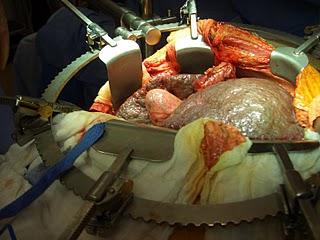
Do you know about liver transplant? It’s kind of surgery involved our liver.
What is Liver Transplant

It is the surgical practice of modern transplantation of organs and tissues function to treat medical illnesses in the vast number of diseases of organs. Of all the single costliest organ transplantation is the transplantation of human liver.
Indications and Contraindications: operation requires a full liver transplant, or part of the liver, derived from living donors or from a corpse in a patient who suffered irreparable damage to the liver, which do not have absolute or relative contraindications. Thus, patients with liver cirrhosis and liver cancer who do not have active infections, persistently alcoholic behaviour, regardless of liver cancers and other conditions, co Pathological considered for transplantation. Due to the mature age and heart and lung complications, certain individuals may not be right to pass this type of surgery and are considered ‘relative contraindications’. However, in cases where the positive aspects of transplantation outweigh the risks involved, will also be considered in these patients undergo liver transplantation.
The process of liver transplantation: In order to transfer existing liver will be removed from its original location through the incision in the upper abdomen after rupture of blood vessels, bile duct, and the ligaments of the liver. After removal transplantation, liver will be placed in one position and blood vessels,. Shortly after a liver transplant patient will begin treatment with immune suppression similar to any other transplant, the liver will also be deviations from the human body.
In addition to a full liver transplant part of the liver can also be a transplant is performed primarily in infants or children. The principle is allograph in the liver graft recipient and since its inception removal of damaged or not functioning of the liver from the same.
Success factors: the liver, seems to possess an important characteristic, in which he was able to grow after transplantation into the recipient. It’s for living donor liver will try and re-grow to compensate for the section in which it was removed. In addition, the liver can create their own resistance to rejection, with the use of certain chemicals and cells. Thus it is less prone to failure and saw to accommodate more than any other organ transplant time passes.
Prediction: After liver transplantation, studies have shown that the recipient may have almost 60% chance of survival 15 years and it shows improved with modern day surgical practice, as well as methods of treatment.
Source :-
http://www.emedicinehealth.com

Leave a Reply